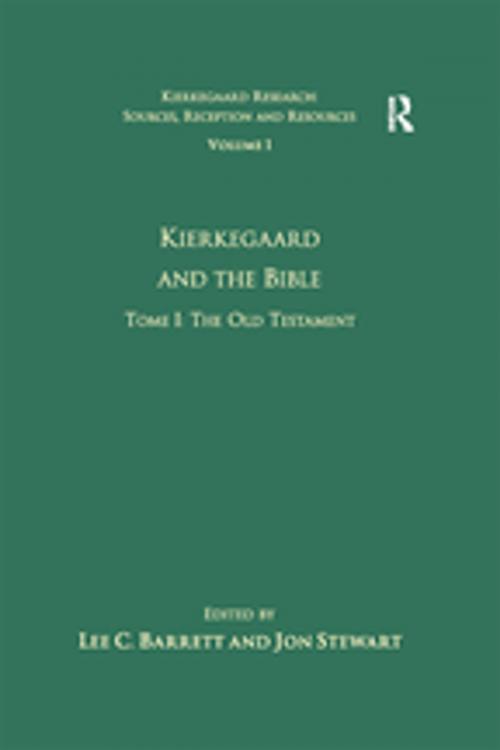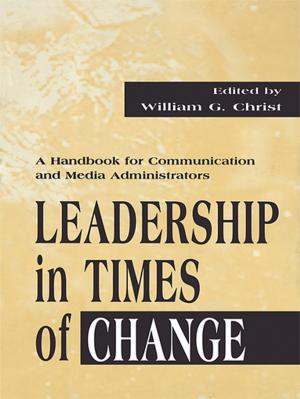Volume 1, Tome I: Kierkegaard and the Bible - The Old Testament
Nonfiction, Religion & Spirituality, Philosophy| Author: | Jon Stewart | ISBN: | 9781351875509 |
| Publisher: | Taylor and Francis | Publication: | December 5, 2016 |
| Imprint: | Routledge | Language: | English |
| Author: | Jon Stewart |
| ISBN: | 9781351875509 |
| Publisher: | Taylor and Francis |
| Publication: | December 5, 2016 |
| Imprint: | Routledge |
| Language: | English |
Exploring Kierkegaard's complex use of the Bible, the essays in this volume use source-critical research and tools ranging from literary criticism to theology and biblical studies, to situate Kierkegaard's appropriation of the biblical material in his cultural and intellectual context. The contributors seek to identify the possible sources that may have influenced Kierkegaard's understanding and employment of Scripture, and to describe the debates about the Bible that may have shaped, perhaps indirectly, his attitudes toward Scripture. They also pay close attention to Kierkegaard's actual hermeneutic practice, analyzing the implicit interpretive moves that he makes as well as his more explicit statements about the significance of various biblical passages. This close reading of Kierkegaard's texts elucidates the unique and sometimes odd features of his frequent appeals to Scripture. This volume in the series devotes one tome to the Old Testament and a second tome to the New Testament. Tome I considers the canonically disputed literature of the Apocrypha. Although Kierkegaard certainly cited the Old Testament much less frequently than he did the New, passages and themes from the Old Testament do occupy a position of startling importance in his writings. Old Testament characters such as Abraham and Job often play crucial and even decisive roles in his texts. Snatches of Old Testament wisdom figure prominently in his edifying literature. The vocabulary and cadences of the Psalms saturate his expression of the range of human passions from joy to despair. The essays in this first tome seek to elucidate the crucial rhetorical uses to which he put key passages from the Old Testament, the sources that influenced him to do this, and his reasons for doing so.
Exploring Kierkegaard's complex use of the Bible, the essays in this volume use source-critical research and tools ranging from literary criticism to theology and biblical studies, to situate Kierkegaard's appropriation of the biblical material in his cultural and intellectual context. The contributors seek to identify the possible sources that may have influenced Kierkegaard's understanding and employment of Scripture, and to describe the debates about the Bible that may have shaped, perhaps indirectly, his attitudes toward Scripture. They also pay close attention to Kierkegaard's actual hermeneutic practice, analyzing the implicit interpretive moves that he makes as well as his more explicit statements about the significance of various biblical passages. This close reading of Kierkegaard's texts elucidates the unique and sometimes odd features of his frequent appeals to Scripture. This volume in the series devotes one tome to the Old Testament and a second tome to the New Testament. Tome I considers the canonically disputed literature of the Apocrypha. Although Kierkegaard certainly cited the Old Testament much less frequently than he did the New, passages and themes from the Old Testament do occupy a position of startling importance in his writings. Old Testament characters such as Abraham and Job often play crucial and even decisive roles in his texts. Snatches of Old Testament wisdom figure prominently in his edifying literature. The vocabulary and cadences of the Psalms saturate his expression of the range of human passions from joy to despair. The essays in this first tome seek to elucidate the crucial rhetorical uses to which he put key passages from the Old Testament, the sources that influenced him to do this, and his reasons for doing so.















